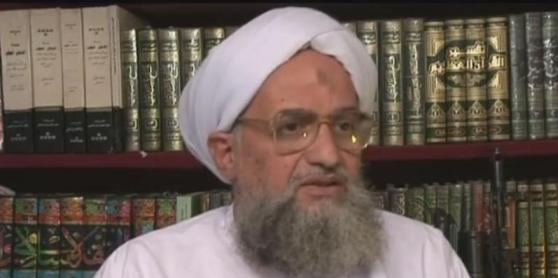
Chief Al Qaeda ideologue Ayman al-Zawahiri gave a good indicator of the current status of his organization’s ideological appeal when Al Qaeda released a video last week.
He referred to President elect Obama as a “house Negro” who has ingratiated himself with and does the bidding of his “white masters.’ Al-Zawahiri contrasted Mr. Obama with “honorable black Americans” like Malcolm X.
By insulting a figure who has inspired hundreds of millions – if not billions – the world over, al-Zawahiri demonstrated just how desperate Al Qaeda has become. When the once formidable propaganda machine of Al Qaeda has nothing left than to pathetically refer to America’s first black President as a “house Negro,” it is clear that the global jihadist movement is badly out of touch with world opinion.
Of course, none of this means that Al Qaeda is no longer a threat or that terrorism will just disappear. Terrorist attacks will likely remain an important factor in local conflicts like the Israel-Palestine conflict and the Sri Lankan civil war. And as CIA Director Michael Hayden warned in a recent speech to the Atlantic Council, despite Al Qaeda’s setbacks, it remains a dangerous and highly adaptable organization whose regeneration along the Afghanistan-Pakistan tribal belt poses a very serious threat to regional and international security.
However, all things considered, Al Qaeda is clearly on the defensive. Operationally, the Iraqi people’s dramatic rejection of Al Qaeda’s brutal tactics in 2006 dealt the organization a staggering setback to its goal of turning Iraq into a base to launch attacks on the broader Middle East. And ideologically, it is clear by Al-Zawahiri’s ham-fisted attempt at defaming Barack Obama that the movement is unsure of how to respond to a Western leader whose non-traditional background appeals to the third world.
With Al Qaeda on the ropes, the opportunity exists for a President Obama to marry his personal appeal, America’s attractive ideology, and the benefit of practical reforms to US foreign policy to deal the global jihadist movement a staggering setback from which it cannot recover. Closing the prison at Guantanamo Bay, taking serious steps to deal with the problem of global climate change, engaging the Middle East peace process early in his term, and working towards a responsible disengagement from Iraq will go a long way toward restoring America’s image abroad. None of these steps will be easy, and in no way is a positive outcome preordained. Nevertheless, Al Qaeda’s stumbles and America’s opportunity to remake its image in troubled times offer this country a chance to make sure that “the forever war” has an ending – and a happy one at that.
Jeffrey Lightfoot is an assistant director of the Atlantic Council’s International Security Program.
Image: Al-Zawahiri2.programthumb.jpg
